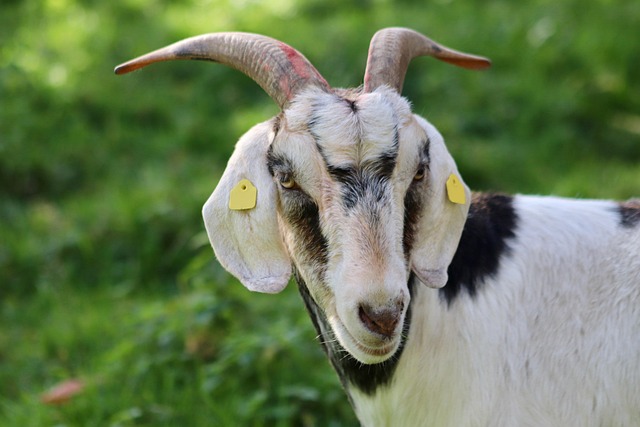
Managing Coccidiosis in Goats with Fenbendazole for Coccidia: What You Should Know
Coccidiosis remains one of the most challenging parasitic infections in goat herds, which predominantly affects young kids and stressed or immunocompromised animals. Information on correct handling of this disease is essential to herd profitability and health. Fenbendazole for coccidia is perhaps the most applied treatment, an anthelmintic that is broadly active and very effective against feline and goat forms of coccidia. Careful use of the drug will help prevent gastrointestinal disturbance, weight loss, and prolonged herd losses.
Fenbendazole liquid for goats is usually administered by veterinarians to goats, along with strict management measures such as sanitation, rotational grazing, and fecal oocyst monitoring to better control parasites. The following sections explore science-based facts about successful and safe application of fenbendazole for coccidia in goat herds.
How Fenbendazole Liquid for Goats Works to Fight Coccidia
Fenbendazole liquid for goats works extremely well in that it interrupts the life cycle of the parasite at more than one stage. Unlike standard wormers, being in liquid form allows one to dose extremely accurately by weight, particularly important in young kids. Clinical trials show that repeated administration over a few days effectively reduces numbers of oocysts in the feces, improving digestive efficiency and overall herd well-being.
In real-world farm environments, experienced goat breeders usually mix fenbendazole goat dewormer with food for easier administration, especially in young kids who will protest direct dosing. Accurate dosage is essential—underdosing fails to kill parasites, while overdosing poisons the liver and digestive system of the goat.
Recommended Dosage and Fenbendazole Administration of Fenbendazole to Treat Coccidia
Fenbendazole dosing in goats with coccidia depends on weight, age, and severity of infection. Veterinarians recommend a course of several days to achieve total eradication. Fenbendazole goat dewormer exists in liquid, paste, and tablet forms, but liquid is most versatile to create dosages that are adjustable for individual animals.
Farmers should carefully monitor treatment with fecal tests and adjust the regimen under the advice of a veterinarian. In multi-species farms, experience from fenbendazole for goats dosage for dogs research also helps in safe cross-species use where dogs and goats share common surroundings.
Real-World Information on Using Fenbendazole Goat Wormer Dosage for Dogs
While primarily for goats, a few of the products, such as fenbendazole goat wormer for dogs, provide an indication of cross-species dosing. Research indicates that understanding species-specific metabolism contributes to the prevention of complications. For example, veterinary practices for goats will direct cautious methods for dogs on farms where goat parasite exposure can happen.
Administering fenbendazole goat wormer dose to dogs without consulting a vet could lead to under-treatment or toxicity. Applying species-specific recommendations avoids goats and dogs from getting sick and reduces the risk of anthelmintic resistance.
Practical Considerations and Cautionary Notes
While effective medications such as fenbendazole for coccidia are wonderful, good herd care is the most important. Overcrowding, unsanitary living conditions, and stress will ruin treatment. The majority of owners are mistaken if they believe that one-dose packaging will suffice; repeat dosing is necessitated.
Observe carefully for secondary effects such as loose stool or loss of appetite for a short duration as well. Consultation with a veterinarian guarantees dosing according to the overall condition, age, and other medications the goat may be on. Products such as fenbendazole horse paste or fenbendazole panacur dogs offer additional information towards selection of safe products but are not a substitute for species-based guidelines.
Supportive Research and Statistics
Modern studies indicate fenbendazole for coccidia reduces oocyst shedding by up to 90% in treated goat herds. This shows its highly effective character when used in conjunction with sound farm management. Fenbendazole liquid for goats applied to goats under well-controlled dosing regimen is a guaranteed means of maintaining herd productivity and health
Integrating Fenbendazole Dewormer for Goats Into Herd Management
For best results, fenbendazole goat dewormer must be applied as part of a scheme of infection control of coccidiosis. That means quarantining sick kids, fecal checking, and rotation grazing. Reputable online vendors like totaltails.shop provide veterinarian-strength fenbendazole goat dewormer with promise of safety and efficiency.
Regular monitoring of herd health data, such as growth rates and fecal oocyst counts, helps in the optimization of treatment intervals and prevention of reinfection. Use of fenbendazole for goats along with simultaneous proper feeding and sanitation ensures long-term herd sustainability.
Fenbendazole for coccidia remains a cornerstone of goat health management. Administering fenbendazole liquid for goats correctly, understanding dosage variations, and integrating herd management practices ensures effective control of coccidiosis. By combining reliable fenbendazole goat dewormer treatments with ongoing monitoring and sanitation, farmers can protect herd productivity, reduce losses, and safeguard animal welfare.
